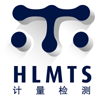
DOC110803-01 |
|
 中文 BG
中文 BG
|
|
President Signs H.R. 2715 Amending the Consumer Product Safety Improvement Act of 2008President Obama signed Bill H.R. 2715 into law on August 12, 2011 after it passed both Houses of Congress on August 1. The President’s signature comes just days before the August 14th date that would have seen a retroactive reduction for lead in substrates of children’s products from 300 ppm to 100 ppm, as required under the Consumer Product Safety Improvement Act (CPSIA). The Bill removes the retroactivity of the lower limit and requires only products produced on or after August 14, 2011 to meet the 100 ppm requirement. Children’s products in inventory, produced prior to August 14, 2011 must still meet the 300 ppm lead limit. The Bill tries all aspects to reduce the cost burden on third-party testing of products. Not later than 60 days after the date of enactment of this paragraph, the Commission shall seek public comment on opportunities to reduce the cost of third party testing requirements. The request for public comment shall include the following: The extent to which the use of materials subject to regulations of another government agency that requires third party testing of those materials may provide sufficient assurance of conformity with an applicable consumer product safety rule, ban, standard, or regulation without further third party testing; The extent to which modification of the certification requirements may have the effect of reducing redundant third party testing by or on behalf of 2 or more importers of a product that is substantially similar or identical in all material respects and so on. You can refer to H.R. 2715 (section 2) for other details. The Bill also excludes the third party testing for some certain printed material and printed products. Some “Ordinary Books” or “Ordinary Paper-based Printed Materials” do not need to proceed with third party test, does not include books with inherent play value, books designed or intended for a child 3 years of age or young. The term: “ordinary book” means a book printed on paper or cardboard, printed with inks or toners, and bound and finished using a conventional method, and that is intended to be read or has educational value. “ordinary paper-based printed materials” means materials printed on paper or cardboard, such as magazines, posters, greeting cards, and similar products. Furthermore, this bill also gives greater authority and discretion to the Consumer Product Safety Commission (CPSC) on CPSIA (Consumer Product Safety Improvement Act) implementation and enforcement. MTS will promptly notify the customers the latest changes of HR 2715 requirements. We will keep an eye on further amendments to this bill and its release. |
Solution
My Profession Your Excellence!
• Heshan Leo Metrology and Testing Services Co. Ltd.(LEO-MTS) can help to improve products quality for you, your supplier and your client.
To more information, please contact
Heshan Leo Metrology and Testing Services Co. Ltd.
0750-8862565 0750-8768244 |
|
Copyright © 2011 HESHAN LEO METROLOGY AND TESTING
SERVICES CO.LTD. All Rights Reserved
Disclaimer:Leo-MTS has tried all reasonable efforts to ensure the accuracy
of information, however the information provided should not be relied
upon as legal advice or regarded as a substitute for legal advice; The
reader should exercise his own care and judgment before replying on
this information in any important matter. |
|